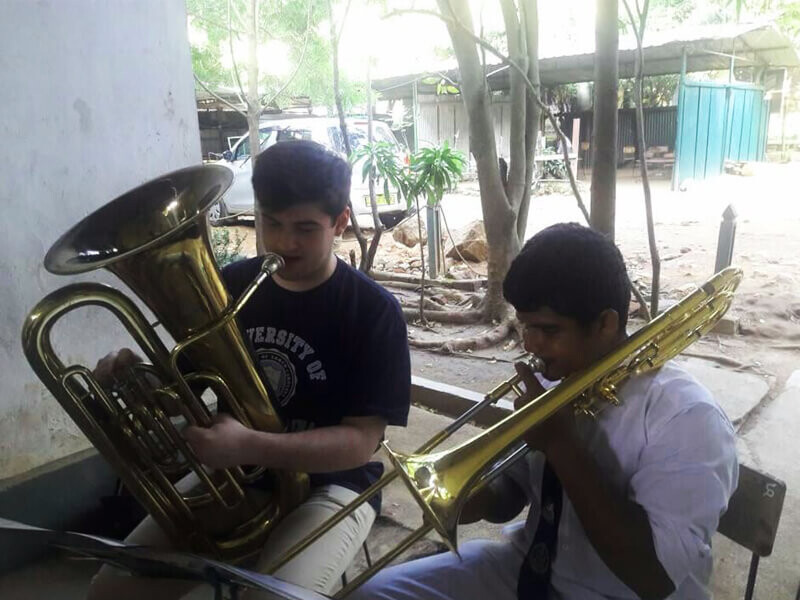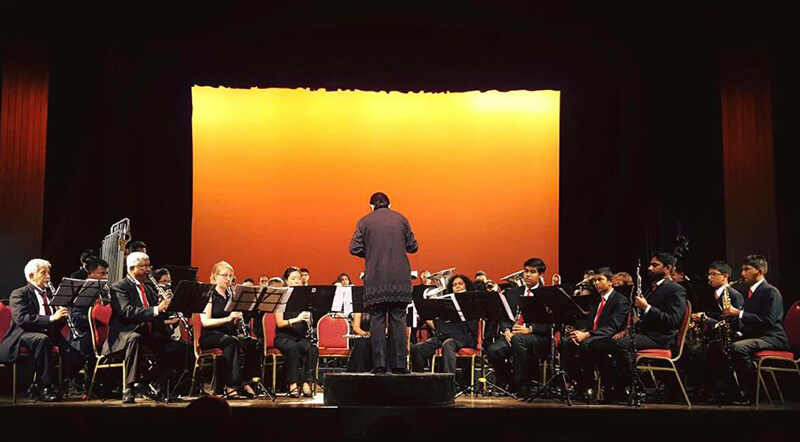
The following post was written by Gap Year Fellow Jennings Dixon.
Up until now, I thought that the DMV had to be the most lethargic, bureaucratic office of nonsense known to man. I was sorely wrong. As I walked into the Immigration and Visa Services Office of Colombo, Sri Lanka, it was just before nine o’clock in the morning. I didn’t see the light of day again until almost two o’clock in the afternoon. At that point, I was really wishing that it was the DMV at home.
I visited the office to get my visa extended. I entered the small tropical island country of Sri Lanka with a visa that lasted for 30 days, but I intended to stay for four months. So, when those 30 days were up, I had no choice but to sacrifice myself to the pit of visa doom. I don’t exaggerate when I say that it was awful. I spent nearly five hours there, waiting for my number to be called, going to four separate waiting rooms, and hoping that in just a few minutes it would all be over.
What surprised me the most was the sheer amount of people there. At least 200 people, both residents and non-residents like me, were waiting and hoping to spend more time here in paradise. When you’re forced to wait for something for such an extensive amount of time, the mind does wander. Mine was trying to figure out why all of these people were here in the first place.
I knew why I was here, of course. I came to the island nation of Sri Lanka to volunteer. As a former high school band geek, I was quite excited to find an organization called “The Music Project.” Through the project, I have been able to share my love of music by teaching local school children traditional orchestral music and instruments.
The Music Project was started eight years ago to provide a form of relief. For nearly 26 years, Sri Lanka was engaged in a civil war against the Tamil people in the north and the Sinhala people in the south. Two groups, speaking two different languages and belonging to two religions and cultures (Hinduism and Buddhism respectively), fought through a long and violent conflict. The Tamil people in the north wanted to secede to create their own Tamil state and preserve their language and culture; but in the end they lost. Sri Lanka sustained many wounds from it. That’s where the Music Project comes in.
The goal of the organization is to offer a creative outlet for children that gives them the opportunity to learn, explore, and mature into good conscientious musicians and people. Operating at three schools in Mullaitivu (a northern Tamil city), three schools in Kurunegala (where I live, a southern town about 2 hours north of Colombo the capital), and now two intercity schools in Colombo, the project operates six days a week. The participants perform collectively several times a year, bringing together the kids of the north and south to create one, united orchestra.

As boring and as excruciating as the visa office was, it did leave an impression on me. Teaching and living in Sri Lanka has become such a natural way of life that I can begin to take it for granted and forget how amazing this opportunity is. I love when I get opportunities to pause, like at the visa office, to really think about how blessed I am this year and how blessed we all are to live in a world filled with so many wonderful places and people.
I had a very nice conversation with a man from Alberta, Canada, who was visiting Sri Lanka for the second time. He’s traveled a lot in his life, particularly in Asia in places like Japan and Indonesia. He had been through this visa process before and told me that this time was much faster than his previous experiences. I didn’t even want to think about how long that took.
All around me there were people from all walks of life. Men, women and children were gathered there, representing every corner of the globe. A group of about half a dozen Buddhist monks, adorned in their tangerine colored robes and carrying their burgundy umbrellas, sat in one corner. A lady from Africa, with her minister collar on, stood talking to a bishop from some European country. A group of Muslim women in their niqabs sat near me; a family from China sat on the other side. It was just a cultural sight to behold. Everyone has a story worth sharing and being able to listen to them is a gift. Even in a place like a visa office, this proves to be true.
